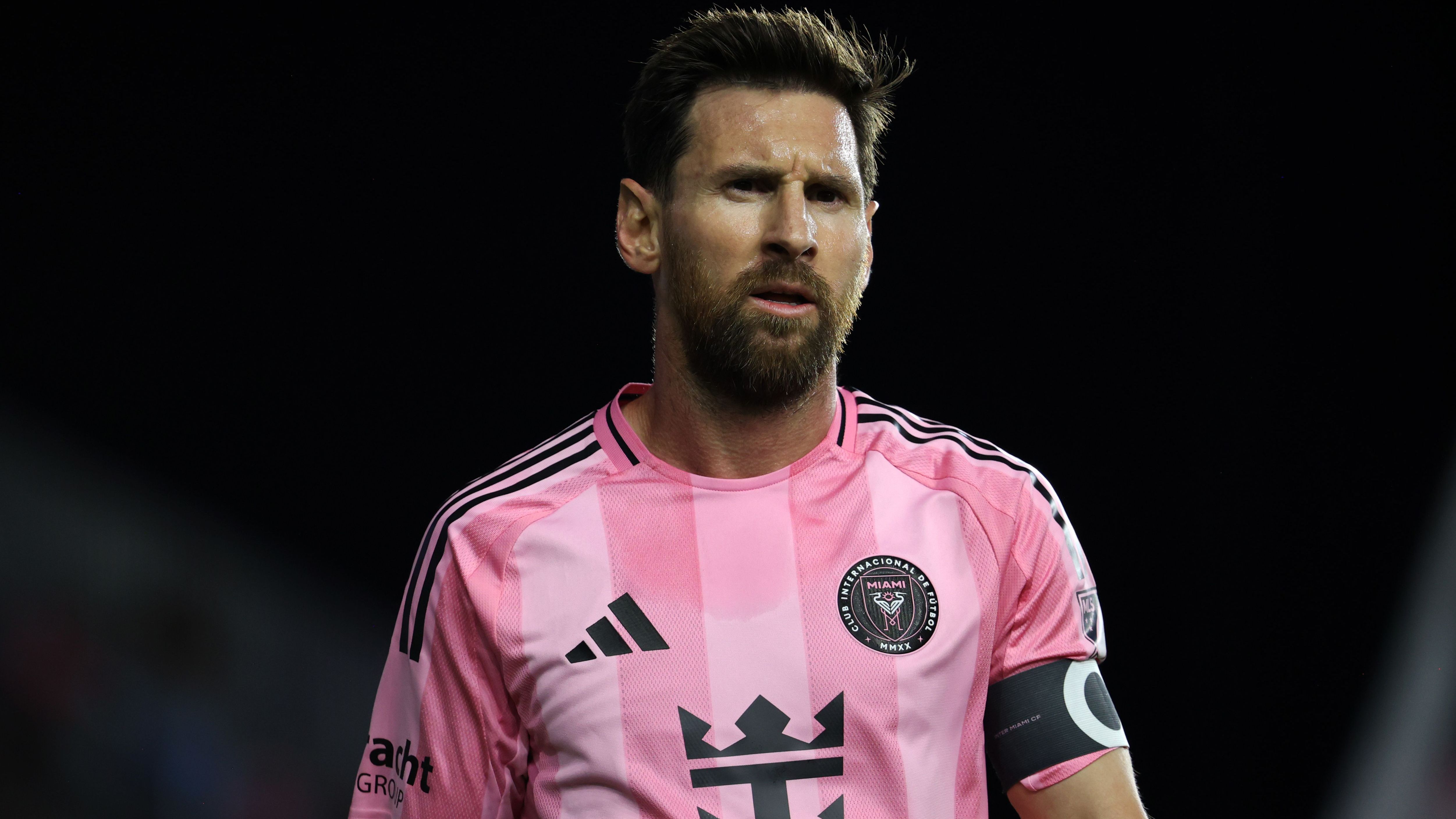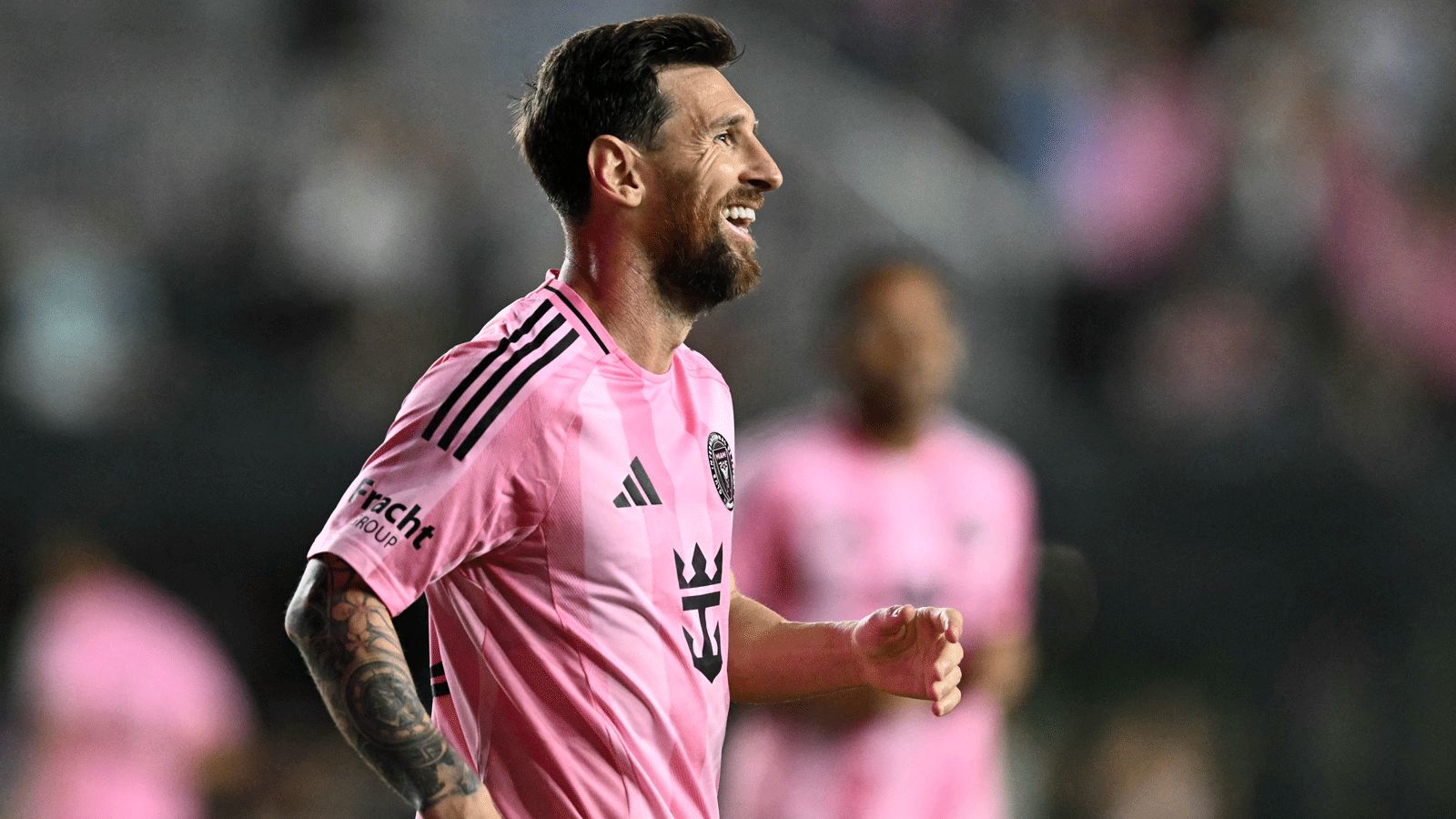


Messi Advocates for MLS Transfer Reforms to Boost U.S. Soccer Development
In an insightful move that highlights his passion for the sport, Lionel Messi, the celebrated Inter Miami captain, is pushing for updates to MLS transfer policies, aiming to accelerate the expansion of soccer in the United States. This call to action stems from his experiences and successes, offering a fresh perspective on how loosening restrictions could draw more elite athletes and elevate the league’s stature worldwide.
The Transformation of the Designated Player Rule in MLS
This mechanism has reshaped the landscape of Major League Soccer by drawing in prominent international talents such as Thierry Henry, Zlatan Ibrahimovic, Kaka, Robbie Keane, and Sebastian Giovinco, thereby enhancing the league’s global appeal and competitive edge. Gradually, MLS has enhanced this framework, introducing options for “Young Designated Players” with reduced financial burdens to support the acquisition of up-and-coming stars. Such advancements have led to landmark signings, including Messi himself, underscoring the ongoing role of this rule in driving the U.S. league’s progress and aspirations.
Decoding the Designated Player Concept
In the MLS context, a Designated Player refers to an athlete whose compensation and acquisition expenses surpass the standard budget limits, yet their effect on the team’s financial ceiling remains controlled. Originally known as the “Beckham Rule” in honor of David Beckham, who became the first to benefit from it when joining LA Galaxy in 2007, this provision enables clubs to secure top-tier global stars without disrupting the overall salary framework. Teams now have the flexibility to opt for up to three Designated Players alongside three U22 Initiative positions or alternative arrangements. Furthermore, straightforward cash exchanges for existing MLS athletes are allowed within defined annual caps, while unlimited General Allocation Money accumulation and an extra yearly contract release option provide clubs with greater financial flexibility. On top of that, homegrown talents not on the main roster can now participate more extensively in various cup events.
Messi’s Push for Less Restrictive Transfer Policies
The Argentine superstar argues that existing transfer constraints are hindering the MLS’s ability to broaden its international influence. In his comments to NBC, he stated: “All squads deserve the chance to recruit talent and secure any player they desire without barriers or constraints on acquisitions. I don’t believe every club in the U.S. currently possesses that capability, and granting them more autonomy could attract numerous high-profile athletes, fostering the advancement of American soccer. All the challenges I faced and accomplishments I earned-it represented my ultimate aspiration. It brought back memories of my journey, including my loved ones, my community, and my homeland, Argentina.”
Messi’s Extended Commitment and Outstanding Contributions
Recently, Messi has agreed to prolong his tenure in Florida through at least 2028, acknowledging his remarkable displays while wearing the Miami colors. As an eight-time Ballon d’Or recipient, he has amassed 73 goals and 37 assists over 83 matches in all tournaments for the Herons, playing a key role in securing the League Cup and MLS Supporters’ Shield. His current goal is to claim the MLS Cup, highlighted by his double strike in Miami’s 3-1 victory against Nashville during the playoffs’ opening round.
Adapting to the Challenges of Aging in Professional Soccer
At 38 years old, Messi openly discusses the physical decline he’s experiencing, yet he has skillfully modified his approach to maintain his significant influence on the pitch. He shared with NBC: “Naturally, with age, certain attributes from youth diminish, such as quickness, reflexes, or the ability to process the game swiftly and decide rapidly.” He continued, “There are moments when your thoughts outpace your body. However, I’ve consistently worked to address these issues, striving to perform at peak levels by maximizing my physical strengths, gameplay, and adjusting to evolving situations.”
Lionel Messi’s Influence on MLS and Transfer Rules
Messi’s Journey to Inter Miami
Lionel Messi, widely regarded as one of the greatest soccer players of all time, made headlines when he joined Inter Miami as captain in 2023. With an illustrious career at Barcelona and stints at Paris Saint-Germain, Messi’s move to Major League Soccer (MLS) was seen as a game-changer for U.S. soccer growth. As Inter Miami’s captain, he has not only elevated the team’s performance but also used his platform to push for changes that could make MLS more competitive on the global stage.
Messi’s background in European soccer, where transfer rules often allow for more fluid player movements and higher investments, has given him a unique perspective. He has expressed how rigid MLS transfer rules, such as salary caps and designated player slots, can hinder the league’s ability to attract and retain top talent. This advocacy stems from his firsthand experience, where he’s seen how flexible transfer policies in leagues like La Liga have fueled player development and fan engagement.
In discussions around MLS reforms, Messi has highlighted the need for rules that balance competitiveness with financial sustainability. For instance, current restrictions limit how much teams can spend on international stars, potentially slowing the influx of world-class players that could inspire young American athletes.
Current MLS Transfer Rules and Their Limitations
MLS transfer rules are designed to maintain parity among teams, but they often create barriers to rapid growth in the U.S. market. Key elements include the salary budget, which caps team spending, and the designated player rule, allowing clubs to sign a limited number of high-profile athletes outside the cap.
These regulations, while promoting fairness, can stifle innovation and global appeal. For example, teams face challenges in negotiating international transfers due to league-specific restrictions, like the discovery list or allocation money systems, which complicate deals and discourage top talents from considering MLS opportunities.
One major limitation is how these rules affect U.S. soccer growth. With soccer popularity rising in America, especially among younger demographics, restrictive transfer policies might prevent the league from capitalizing on momentum. Messi’s advocacy points out that without reforms, MLS risks lagging behind leagues in Europe and South America, where seamless player transfers drive excitement and investment.
- Key challenges with current rules:
- Salary caps and budgeting: Limit the ability to sign elite players, potentially reducing the league’s star power and global visibility.
- Designated player slots: Only a few teams can afford superstars, creating imbalances that don’t foster widespread growth across all MLS clubs.
- Transfer windows and fees: Prolonged processes can deter agents and players from engaging with the U.S. market, slowing the development of domestic talent.
Messi’s Specific Advocacy for Transfer Reforms
As Inter Miami’s captain, Messi has been vocal about reforming MLS transfer rules to better support U.S. soccer growth. He argues for adjustments that would make it easier for teams to acquire international players, such as increasing the number of designated player slots or relaxing salary constraints for proven stars. This, he believes, would not only boost competition but also elevate the overall quality of play, making MLS a more attractive destination for global talents.
Messi’s calls for change often emphasize long-term benefits for American soccer. In interviews, he has suggested reforms that include more flexible transfer windows and simplified international signing processes. For instance, adopting elements from models like the English Premier League could help MLS foster a more dynamic environment, encouraging investments in youth academies and infrastructure.
- Reforms Messi supports:
- Expanded designated player rules: Allowing more slots per team to bring in top-tier athletes, which could accelerate U.S. growth by exposing fans to high-level soccer.
- Relaxed salary caps: Introducing tiered budgets based on team performance or market size, helping smaller clubs compete while attracting big names to drive viewership.
- Streamlined international transfers: Reducing bureaucratic hurdles to make MLS more appealing to agents and players worldwide, ultimately building a stronger talent pipeline.
These proposals align with Messi’s vision of making soccer a dominant sport in the U.S., much like it is in his native Argentina. By pushing for these changes, he’s helping spark conversations about how transfer rules impact everything from fan attendance to youth participation rates.
Potential Impacts of Reformed Transfer Rules on U.S. Soccer
Reforming MLS transfer rules isn’t just about big names like Messi-it’s about creating a ripple effect across the American soccer landscape. Changes could lead to increased investment in domestic leagues, more opportunities for U.S.-born players, and a surge in popularity that rivals other major sports.
Experts note that easier player acquisitions might result in higher TV ratings and sponsorship deals, injecting more revenue into the league. For fans, this means more exciting matches and a chance to see world-class soccer without traveling abroad.
- How reforms could boost U.S. growth:
- Talent development: By allowing more international players, MLS could enhance training programs and academies, helping American talents compete globally.
- Fan engagement: A more competitive league with star players could attract a broader audience, increasing attendance and merchandise sales.
- Economic benefits: Streamlined transfers might draw more corporate sponsors, supporting infrastructure like new stadiums and community programs.
Messi’s advocacy serves as a catalyst, reminding us that thoughtful reforms can position MLS as a key player in global soccer, fostering sustainable growth in the U.S. With ongoing discussions involving league officials, his influence could shape policies that benefit players, teams, and fans alike.









